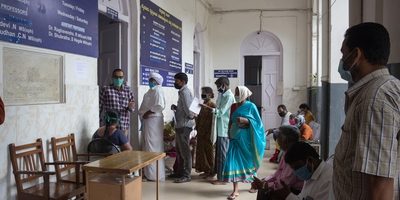
Trial Managers: The unsung heroes of #ClinicalTrials
Randomised controlled trials sit atop the pyramid of research evidence not just by the virtue of their design but also by the way they are conducted. Further, large multicentre clinical trials are required to be impactful, generalisable and produce reliable evidence. In India, owing to good internet access and technological advancements it has become feasible to conduct large pragmatic clinical trials and be part of large global trials.
Why Trial Managers are heroes
Every stage of a clinical trial is a collaborative endeavour with each member playing a valuable role. Trial teams have become diverse and include individuals with varied backgrounds and skills. A trial manager is the backbone of the trial coordinating team with a job of operationalising clinical trials and ensuring their smooth implementation. A trial manager’s inputs are essential to protocol and case report form development. It is their expertise which guides parallel operational processes and fund management. It takes meticulous planning during the initial stages of a trial that reduces hiccups and facilitates ease of implementation. Study teams should be prepared to face a variety of operational challenges during the conduct of a study such as obtaining regulatory and ethics approvals, preparing monitoring plans and study documentation, and devising strategies to advance participant recruitment and retention. Trial managers not only play a key role in overcoming day to day study implementation challenges but also foresee challenges and devise risk mitigation strategies. Hence, trial managers come from a range of diverse backgrounds as their roles involve having a mixed skillset of research, clinical knowledge, and project management related capabilities.
On scarcity and the value of Trial Managers
In India, expert trial managers are a scarce group concentrated in large academic research institutions. So why do clinical research coordinators not transition to trial managers? This could be a reflection of the lack of research capacity strengthening opportunities, and limited mentoring and methodological expertise in the medical workforce who run the trials. Salaries are based on the funding that trials receive, which could be unattractive for people seeking stability in their work. There is a growing encouragement from the medical fraternity for physicians to engage in trials and while the number of physician-researchers is many, trial managers are few. This means that the expertise in clinical trials is concentrated at the beginning (protocol development) and end (results publication) of a trial. As trials become increasingly pragmatic, researchers require problem-solving in real world settings. A trial’s success is defined by the quality of its conduct. It is in the interim that participants are recruited and followed up and the quality of the study is determined. It is the daily firefighting and critical thinking that makes for a good trial manager, and a successful trial.
In a way, trial managers are the unsung heroes of a clinical trial, their value often overlooked in research and academic outputs. This may be one of the reasons for people in academia to opt out of this career path, for a fear of being seen in a purely administrative role without much scientific or methodological contributions. Owing to their mixed skillset, trial managers are in a unique position to grow into either independent researchers or administrators. Opportunities for training, development and mentorship need to be available for trial managers to grow within their careers into these roles. There is much room for support from funders, journals and more importantly investigators to involve and provide representation to trial managers in India. Creating and developing a cadre of expert trial managers is essential to building research capacity of the country and contributing the conduct of high-quality trials which will create an impact on the health of millions of people.


